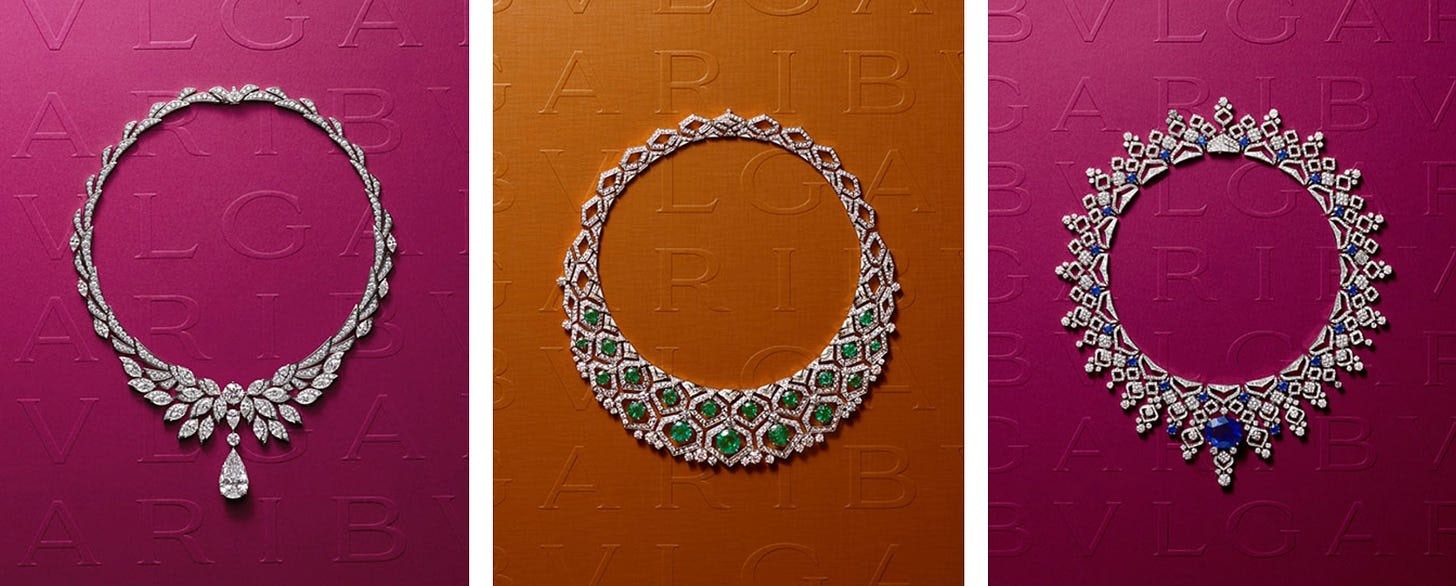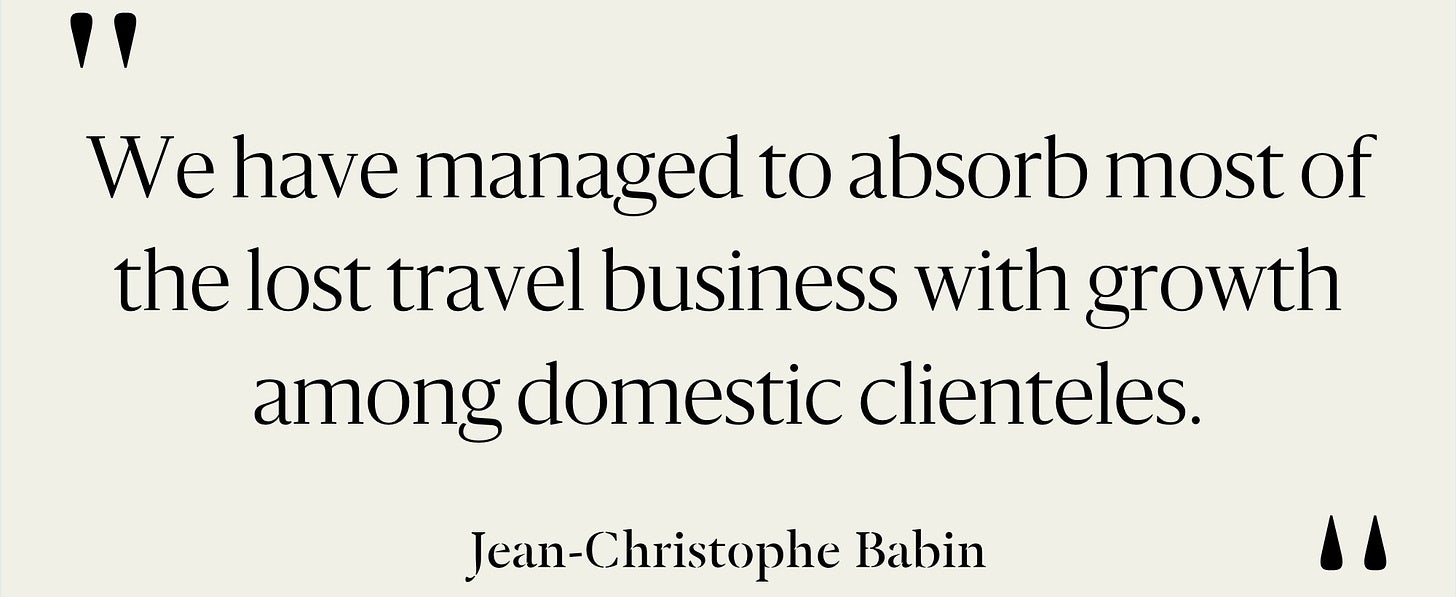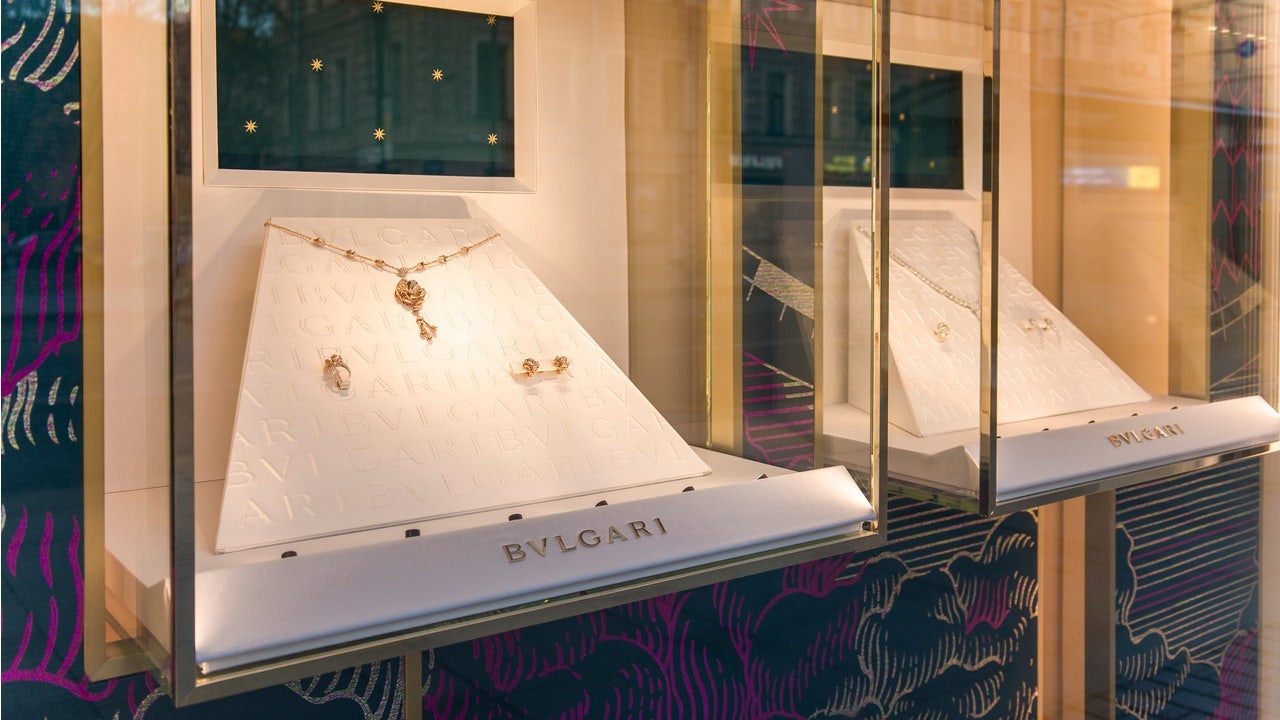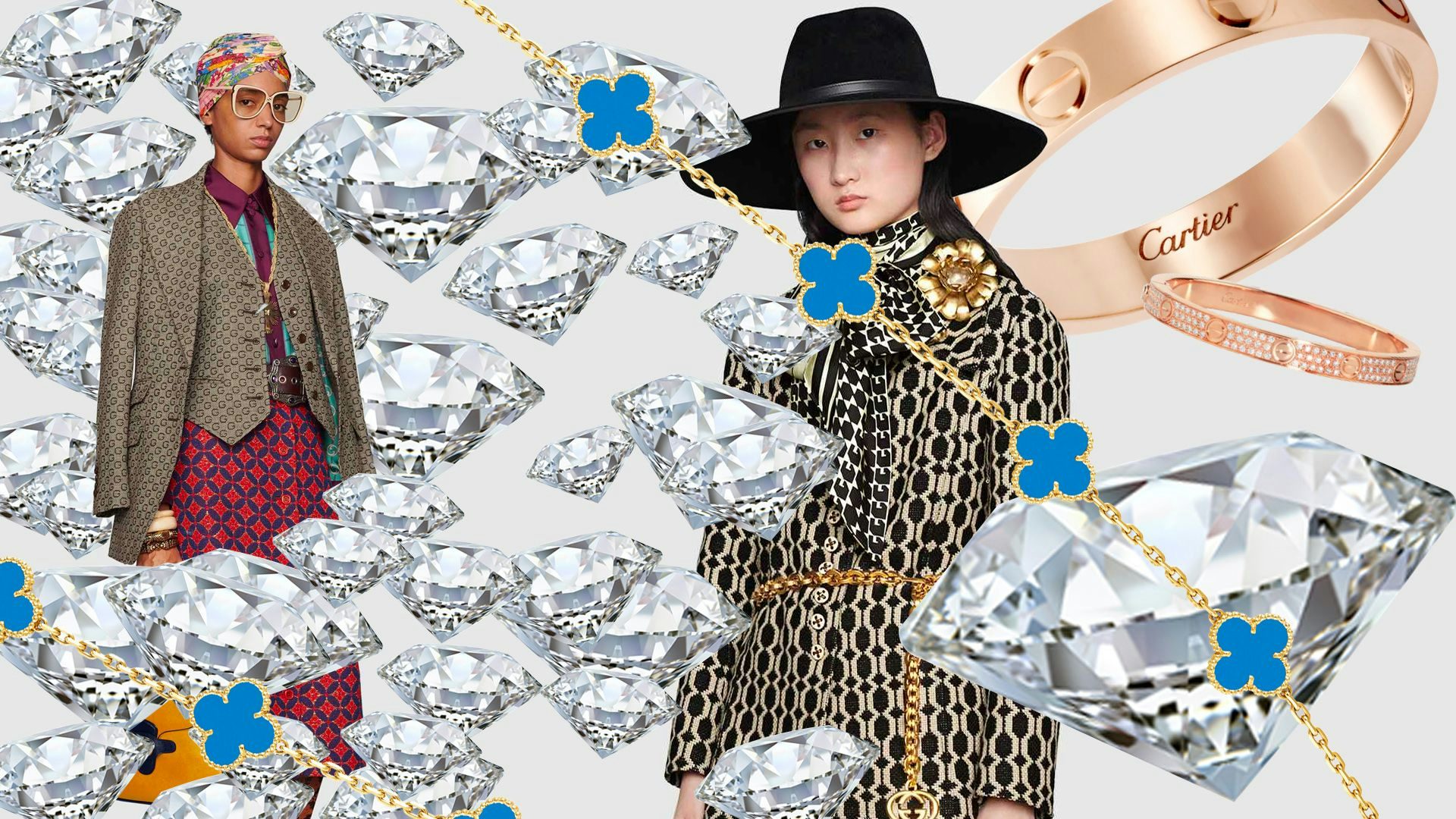This post originally appeared on Content Commerce Insider, our sister publication on branded entertainment.
As 2020 draws to a close, Content Commerce Insider has been catching up with leaders in their fields to share reflections on this transformative period as well as predictions for what comes next.#
In the second installment of our year-end Qamp;A series, we caught up with Jean-Cristophe Babin, CEO of the storied Italian luxury house
Bvlgari#
.
Following an impressive run as the chief executive of
TAG Heuer#
, Jean-Christophe Babin took the reins as Bvlgari’s CEO in 2013 and over the past seven years has presided over the brand’s ongoing global expansion, including innovative digital efforts in China. In our interview, we discussed Bvlgari’s experience over the course of 2020 and the brand’s expectations for 2021.
CCI: 2020 has been a challenging year for every luxury brand. As the Covid-19 pandemic began to spread globally, how did Bvlgari adjust its marketing and sales strategies?#
Jean-Christophe Babin:#
2020 was certainly a very challenging year, but we can say that on a business level the pandemic had the role of accelerator of some strategies and initiatives already launched or being finalized. We gained in agility and adaptability, doubled our e-commerce network from eight to 17 markets, optimized our supply chain to be more flexible, anticipated new initiatives planned for 2021 or 2022 like Bvlgari Aluminium, and established new bonds with our clients, multiplying one-to-one communication enabled by digital technologies.
We also intensified our presence and relevance on social networks, gaining more followers than ever but also significantly increasing our engagement rate. Last but not least, we intensified our investment in corporate social responsibility, especially in the fields of education and health. In health, we donated a massive amount of sanitizing gel manufactured by Bvlgari Fragrances to Italian, Swiss, and British hospitals while in parallel funding research, in particular at the Jenner Institute [in Oxford, a partner in developing a promising Covid-19 vaccine candidate with AstraZeneca].
CCI: As consumers spent more time at home amid extended quarantines, did Bvlgari move towards creating more connections on the “cloud”?#
Babin:#
Yes, absolutely and in different phases depending on the moment. At the beginning, we wanted the relationship with the customer to be above all personal, and one of closeness in such a complex and unexpected moment. Then we created a whole series of activities that allowed us to involve the customer, even if in digital form.
Just think of the launch of the Barocko High Jewelry Collection, one of the most important moments of the year for our brand. For the first time, Bvlgari gave clients exclusive access to its latest high-jewelry collection through an innovative luxury format to enchant and sell via a dedicated “Barocko” app. Along with detailed information and 360-degree images of each piece, the app also features a “try on” augmented reality tool that, through the phone camera, enables the user to virtually “wear” the jewelry creations and shoot a self-portrait.

In addition, Bvlgari created interactive content, showing the cultural and aesthetic links between the Baroque movement and Roman jewelers, to offer an unforgettable journey through the new “Barocko” adventure and inspire awe and wonder. Clearly, it was not possible to involve our customers from all over the world at the same time at a single big event, but we could dedicate ourselves to them with the same excellence and uniqueness that we have always offered. We then followed up with local brand events at which we physically presented the collection.
CCI: One area that took a big hit in 2020 is international travel, and with it, international shopping by long-haul tourist-shoppers. How has this shift impacted Bvlgari’s global merchandising strategy, if at all?#
Babin:#
Obviously travel retail is important to luxury, especially jewelry and watches, which are the most expensive luxury goods — hence with the highest potential tax-free savings in terms of absolute value. This year, this important business has virtually vanished as of the end of March with all of the travel restrictions generated by the pandemic. As a result, we have refocused our priorities and human and financial resources on our domestic clients, increasing local events, one-on-one dinners, online chats, etc., to strengthen the relationship and keep clients updated on Bvlgari initiatives, from our war against Covid to new jewelry or watches. And we have managed to absorb most of the lost travel business with growth among domestic clienteles, not only in China but also Europe, the United States, Russia, the Middle East, and Thailand.
CCI: Last year, you mentioned to us that increased domestic shopping by Chinese consumers would be a long-term trend. In 2020, this was absolutely the case. What is Bvlgari doing currently in China to continue benefiting from this domestic shopping shift?#
Babin:#
Apart from normal consumption, we noticed a surge in shopping during local key consumption periods (KCP) like 520 and Chinese Valentine’s Day. People are more willing to spend, especially on luxury, to celebrate and be part of the sensation. Additionally, Covid-19 temporarily preventing Chinese consumers from traveling just accelerated the increase in domestic shopping, both in our boutiques and online, with double-digit growth in the former channel and triple-digit growth in the later. To further fuel this shift, we have invested more in increasing our visibility in China, opening new stores, increasing the number of pop-ups, and adjusting the prices on leather goods, especially on new collections, to levels now close to Europe (as we had previously done for watches and jewelry).
CCI: We saw a significant number of “hard luxury” brands launch e-commerce efforts this year, particularly in China. Has e-commerce traditionally been an avenue Bvlgari is interested in pursuing?#
Babin:#
In addition to the eight worldwide markets already covered at the end of 2019, Bvlgari has launched seven new e-commerce sites in Italy, France, The U.A.E., South Korea, Mexico, Brazil, and Singapore over the last few months. Growth is in the triple digits in all markets with particularly strong performance in North America, Japan, and especially China.
Omnichannel helps us create a fluid connection across all physical and digital touchpoints and offers an online experience that is increasingly similar to that of a boutique. We have the ability to offer customer service that we like to think of like a "conversation craftsman,” to support the customer in choosing and purchasing according to the very high standards of the brand. Commercially, the jewelry division is the backbone of our boutiques and e-commerce networks, and our ambition is to be recognized as the most exciting and efficient luxury omnichannel experience by continuously innovating our clienteling culture, approach, and tools.
For instance, as already mentioned, our 2020 Barocko try-on app has been a major innovation to strengthen and substantiate our one-to-one client relationships and turn it into a very exciting and enjoyable interactive experience with promising commercial results.
CCI: Growing interest in livestreaming has attracted brands like Cartier to experiment with the format in China. How does Bvlgari plan to incorporate livestreaming into its marketing efforts particularly in China?#
Babin:#
We used livestreaming when we launched the Ambush collection on WeChat by collaborating with celebrities and KOLs to introduce the collection, linking to our WeChat Mini Program for conversion. We also work with first-tier livestreamers by inviting them to our events, and through product placements on their live shows, since each of them has their own great followers and the followers do buy into what they say or showcase.

CCI: What, if any, consumer trends that began to emerge in 2020 do you expect to stay, even if the Covid pandemic ends in 2021?#
Babin:#
Covid-19 has been both a human tragedy and a cultural accelerator. From a business culture standpoint, it has brought brands closer than ever to their clients, if not physically then virtually, thanks to state-of-the-art digital tools that foster more frequent and informal contact than the traditional and somewhat formal and occasional store visit. In addition, it has brought about quicker decision making and more agility thanks to much more frequent dialogue between local Bvlgari teams and headquarters, with daily Zoom or Webex discussions taking the place of monthly or quarterly trips and business reviews.
Covid has also accelerated the exponential development of social media efforts, where from Weibo to Instagram, Bvlgari has been one of the most proactive brands, increasing its community by millions in one single year.
Last but not least, Covid has accelerated the consumer obsession for true luxury, i.e., authentic, artisanal, ethical, timeless, and highly qualitative, all dimensions which were present in Bvlgari but not necessarily known as they were rarely promoted. We thus took part in MasterClass digital programs meant to show the behind-the-scenes activities at our workshops and craftsmen and women. For instance, rather than just stressing that most of our gold was recycled and compliant with the highest ethical protocols. Furthermore, our timely initiatives against Covid — from widespread donation of sanitizing gels to contributing to antiviral research — has also done a good job of showing the generous soul of the company.
In the past, this was demonstrated with record donations for education through Save the Children, assistance to preserve and restore Roman artistic heritage with the Spanish Steps, or unveiling the Torlonia Marbles collection to the public for the first time — showing off one of the most impressive antique treasure ever, comparable to Qinshihuang’s terracotta army in Xi’an or the treasures of Tutankhamun’s tomb.
Special thanks to Jean-Cristophe Babin and to Farrel Yi for facilitating this Qamp;A.

